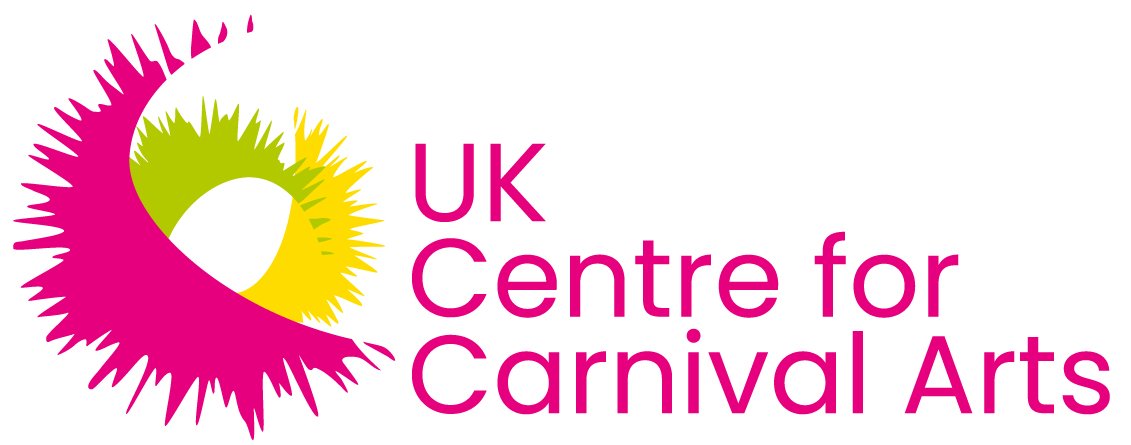Sustainable Arts Education
Carnival arts education for children and young people and continued development of artists are at the core of our work and purpose as an organisation. Exploring and piloting masterclasses and education programmes in sustainable arts education was an integral part of our development of sustainable practices.
Environmentally sustainable arts education plays a crucial role in fostering creativity and awareness while promoting responsible stewardship of our planet. By integrating sustainability into arts education, students not only develop their artistic skills but also cultivate a deep respect for the environment and its resources (Wilson, 2021).
Firstly, sustainable arts education encourages innovative thinking. It challenges students to explore materials and techniques that minimize environmental impact, pushing them to find creative solutions that are both aesthetically pleasing and eco-friendly. This process fosters critical thinking and problem-solving skills, essential for addressing complex environmental challenges in the future (Taylor, 2020).
Secondly, such education instils a sense of responsibility and ethics in students. By learning about sustainable practices, they understand the consequences of their artistic choices on the environment. They become conscious consumers and creators, advocating for practices that prioritise ecological balance and reduce waste (Johnson, 2019).
Moreover, environmentally sustainable arts education can inspire broader societal change. As students incorporate sustainability into their artistic expression, they influence communities and industries towards more sustainable practices. They become ambassadors for environmental awareness, using their art to communicate important messages about conservation and climate action (Smith, 2022).
Integrating environmental sustainability into arts education nurtures a generation of artists and thinkers who are not only skilled but also conscientious global citizens. It equips them with the tools to create responsibly and contribute positively to a sustainable future (Brown, 2021).
Carnival Masterclasses
We hosted a series of three masterclasses open to the public attracting artists of all levels.
Costume Frame Construction - participants learned the basics of costume construction under the guidance of UKCCA resident artist Steven Hoyte . The sessions covered fundamental techniques for designing and constructing wire headdresses and backpacks. Key topics included understanding weight distribution and frame performance by using various materials. This knowledge is crucial for ensuring the structural integrity and comfort of the costumes. The masterclass emphasized sustainable practices by teaching participants how to reuse and restyle costume elements effectively. These skills empower participants to create durable, high-performance costumes while minimizing waste and promoting environmental responsibility in their artistic endeavours.
Sustainable Costume Design and Construction - In the masterclass led by UKCCA resident artist Melissa Simon-Hartman, participants explored the practical application and importance of sustainable materials through 'reuse and recycle' in costume design and construction. They learned to identify suitable recycled materials based on texture, durability, and aesthetic appeal, and developed skills to repurpose these materials into unique costume pieces. The class covered techniques for integrating recycled materials into designs while maintaining comfort and functionality. Participants enhanced their creativity by brainstorming and sketching sustainable costume concepts, gained insights into sourcing recycled materials, and understood the lifecycle of sustainable costumes, including educating clients and production teams about their value. This masterclass was particularly popular among local voluntary carnival groups, early career artists, professional artists, a Notting Hill Carnival Head Costume Judge, and two BBC stylists. The discussions and debates were especially meaningful, covering a range of topics including the importance of sustainability, issues of quality and artistic progression, and the value of returning to traditional methods.
Fabric Manipulation - In the masterclass led by UKCCA resident artist Melissa Simon-Hartman, participants delved into the art of textile transformation. This creative session allowed attendees to experiment with altering pre-loved fabrics and crafting bespoke textiles using innovative techniques. Through hands-on experiences, participants learned various methods of fabric manipulation, fostering innovation and originality in their designs. The workshop provided a space for attendees to explore, design, and create unique and personal textile creations, enhancing their skills and creativity in sustainable costume design and construction.
Pilot Work Experience Programme - In our pilot work experience programme, we supported Level 1 and 2 Arts and Design and Pathways students from Barnfield College over four days. These post-16 students, including asylum seekers, refugees, and SEND young people, gained hands-on experience by learning and applying basic construction and design skills to practical tasks set as ‘live’ client briefs. Emphasising sustainable practices, they explored reuse and recycling in art in the live briefs, producing artworks that were showcased in Luton Carnival 2024. Two students progressed to further live work experience opportunities for the Luton Carnival build-up, and we awarded them with outstanding achievement awards for their skills development and dedication.
Discover Sustainable Carnival Arts Award - We piloted an Arts Award programme in Sustainable Carnival Arts with Year 5 pupils from the Pioneer Learning Trust. The programme focused on reusing and recycling the Trust's Luton Town Football Club-themed costumes previously worn in the Luton Carnival. Pupils learned design and decoration techniques to transform existing costumes, and they explored the environmental impact of costume materials, emphasizing the importance of reuse and recycling. They also learned about eco-friendly materials, such as biodegradable glitter. The pupils completed the programme, earning a nationally recognized Discover Arts Award, and performed in the costumes they had redesigned for Luton Carnival 2024.
Riki Cycle - In collaboration with Luton-based storyteller, A Children's Story, Luton Carnival 2024 featured three cycles of the performance "Riki Cycle," an interactive family puppet show set in Luton's recycling centre. In the show, Riki, on his first day as a bin man, learns about recycling from three puppet characters living in a recycling bin. The performance teaches children aged 4-7 the basics of recycling and raises awareness of plastic pollution in the oceans through engaging characters and catchy songs. This tested audience engagement with our sustainable Luton Carnival messaging. Inspired by this success, we aim to incorporate the show into our emerging sustainable arts education programme.

























